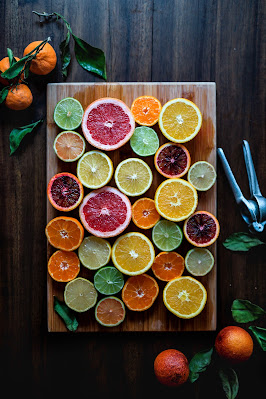FAQ: 8 Frequently Asked Questions about Donating Plasma
1-fatty foods to avoid before donating plasma
When you donate plasma, it is important to avoid fatty foods beforehand. Fatty foods can cause problems with the process and make it more difficult for the plasma to be separated from the blood. This can lead to delays and a less successful donation.
1.1-What is plasma?
Plasma is the clear, straw-colored liquid component of blood that holds the red and white blood cells in suspension. It makes up about 55% of our blood volume and is mainly composed of water (90%), proteins (6-8%), and other electrolytes.
The most common type of plasma donation is called whole blood donation, where plasma is separated from the other blood cells and components during the donation process. However, there are specialized plasma donation centers that collect only plasma.
Plasma donations are used to help people with clotting disorders, such as hemophilia, and to make products that help people with immune system disorders and burns.
1.2-What are the benefits of donating plasma?
There are many benefits to donating plasma. For one, it can help save lives. Plasma is a vital component of blood that helps to transport nutrients and oxygen to cells and organs throughout the body. It also plays a role in clotting and helps to fight infection.
Donating plasma can also be a way to earn extra money. Many plasma donation centers offer donor compensation, which can range from $20 to $50 per donation. This can be a great way to make some extra cash if you’re short on funds.
Lastly, donating plasma can help you feel good about yourself. Knowing that you’re helping others in need can be a great way to boost your self-esteem and increase your sense of purpose.
1.3-Which fatty foods should you avoid before donating plasma?
If you're thinking about donating plasma, you may be wondering which fatty foods you should avoid beforehand. While there are no specific guidelines, it's generally advisable to steer clear of fatty foods before donating. Fatty foods can cause nausea and vomiting, and they can also slow down the process of plasmapheresis (the procedure used to collect plasma). So, to make sure your donation goes smoothly, it's best to avoid fatty foods for a few hours before your appointment.
2-best foods to eat before donating plasma
Donating plasma is a great way to help others in need, but it's important to make sure you're properly prepared before you donate. In this article, we'll go over some of the best foods to eat before donating plasma, so that you can be sure you're getting the most out of your donation.
2.1-Who Can Donate Plasma?
Anyone who is in good health and meets the eligibility requirements can donate plasma. The food you eat before donating plasma can make a difference in how well your donation goes and how much plasma you're able to donate.
What are the best foods to eat before donating plasma? To ensure a successful plasma donation, it's important to eat a nutritious meal and stay hydrated. Foods that are high in protein and iron are particularly beneficial, as they help to increase the production of red blood cells. Some good options include lean meats, poultry, fish, beans, lentils, tofu, spinach, Swiss chard, eggs, and nuts. It's also important to drink plenty of fluids—water is always a great choice, but low-sugar sports drinks can also help keep you hydrated and provide some additional electrolytes.
2.2-best foods to eat before donating plasma
When it comes to plasma donation, what you eat can make a big difference. There are certain nutrients that are essential for maintaining a healthy blood supply, and by eating foods rich in these nutrients, you can ensure that your plasma donation will be of the highest quality.
Some of the best foods to eat before donating plasma include leafy green vegetables, lean protein sources, and fruits high in vitamin C. Leafy greens such as spinach and kale are packed with iron, which is necessary for proper blood production. Lean protein sources such as chicken and fish provide essential amino acids needed for blood cell growth. And fruits high in vitamin C help keep your immune system strong, preventing infections that could complicate the donation process.
By eating a nutritious diet leading up to your plasma donation, you can help ensure that your donation will be of the highest quality and make a real difference in the lives of those who receive it.
2.3-Foods to Avoid Before Donating Plasma
If you're looking to donate plasma, there are certain foods and drinks you should avoid beforehand. Eating or drinking these items can make it difficult for your plasma to be used. Here are some things to avoid:
- Alcohol
- Caffeine
- Dairy products
- fatty foods
- spicy foods
By avoiding these items, you'll make it easier for your plasma to be used by those who need it.
3-Can i eat eggs before donating plasma ?
Can you eat eggs before donating plasma? It is a common question asked by those who are looking to donate. The answer is yes, you can eat eggs before donating plasma. However, it is important to make sure that you cook the eggs properly to avoid any food poisoning. It is also important to eat a balanced meal before donating plasma to ensure that your body has the nutrients it needs.
4-what to eat for breakfast before donating plasma?
Before you donate plasma, it's important to eat a nutritious breakfast. This will help you stay energized and comfortable during the donation process. Here are some ideas for what to eat for breakfast before donating plasma.
4.1-Why you should eat before donating plasma
Donating plasma is a great way to help others in need, but it's important to make sure you're properly fueled before you donate. Eating a nutritious breakfast before donating plasma can help ensure that you have the energy you need to donate plasma and that your donation is as effective as possible.
There are a few things to keep in mind when choosing what to eat for breakfast before donating plasma. First, it's important to eat something that will give you sustained energy throughout the donation process. Second, you want to avoid foods that are high in fat or sugar, as these can make you feel sluggish. And finally, it's always a good idea to drink plenty of fluids before donating plasma, so be sure to include a glass of water or juice with your breakfast.
Some great options for a pre-plasma donation breakfast include oatmeal with fruit, whole grain toast with peanut butter, or yogurt with granola. All of these options will give you the energy you need to donate plasma and help make your donation as successful as possible.
4.2-What nutrients are important to eat before donating plasma
There are a few things to consider when deciding what to eat before donating plasma. First, it is important to have a good breakfast that includes some protein and complex carbohydrates. This will help to keep your energy levels up during the donation process. Second, you should make sure to drink plenty of fluids, especially water, before and after donating plasma. This will help to keep your body hydrated and prevent any side effects from the donation process. Finally, it is important to eat a healthy diet in general, and to avoid processed foods and sugary drinks before donating plasma. Eating a nutritious diet will help to ensure that your body is able to handle the donation process and recover afterwards.
4.3-What foods contain these nutrients
If you're looking to donate plasma and want to make sure you have the best possible experience, it's important to eat a nutritious breakfast beforehand. This means eating foods that are high in iron, protein, and other essential nutrients.
Some great options for a pre-donation breakfast include:
- Scrambled eggs with spinach and toast
- A bowl of oatmeal with fruit and nuts
- A smoothie made with yogurt, fruit, and chia seeds
- A slice of whole grain toast with avocado and an egg
No matter what you choose to eat, make sure it contains plenty of iron and protein so that you can give plasma without feeling weak or dizzy.
4.4-Recipes for a nutrient-rich breakfast before donating plasma
When it comes to giving plasma, it's important to make sure you're well-fed before you donate. A nutrient-rich breakfast will help ensure that you're feeling your best and ready to donate.
Here are a few recipes for a healthy breakfast that will give you the energy you need to donate plasma:
- Overnight oats with chia seeds and berries: This filling breakfast is packed with protein and fiber to keep you satisfied all morning long. Simply mix together oats, chia seeds, milk, and berries the night before and enjoy cold or heated up the next day.
- Egg muffins with vegetables: These portable egg muffins are perfect for on-the-go mornings. They're packed with protein and can be easily customized with your favorite vegetables. Simply whisk together eggs, vegetables, and some shredded cheese then bake in a muffin tin.
- Fruit and yogurt parfait: This light but satisfying breakfast is perfect for hot summer mornings. Simply layer yogurt, fresh fruit, and granola in a jar or cup and enjoy.
- Smoked salmon on bagel: This protein-rich breakfast will give you sustained energy all morning long. Toast a
5-what should i eat before donating blood
If you're thinking about donating blood, you might be wondering what you should eat beforehand. While there are no specific dietary requirements, there are a few things that can help you have a successful and safe donation experience. In this article, we'll cover what to eat before donating blood, so that you can feel your best and do your part to help those in need.
5.1-What to eat before donating blood
Donating blood is a noble and selfless act that can save lives. If you're planning on donating blood, it's important to make sure you're properly fueled up before doing so. Eating the right foods before donating blood can help to ensure that the donation process goes smoothly and that your blood is of the best quality possible.
There are a few things to keep in mind when choosing what to eat before donating blood. First, you'll want to avoid eating anything that is high in fat. Fatty foods can make it more difficult for your body to produce the needed amount of blood, and they can also increase the risk of complications during the donation process.
Instead, focus on eating foods that are high in iron and protein. These nutrients are essential for producing healthy red blood cells, which are responsible for carrying oxygen throughout the body. Good sources of iron include lean meats, dark leafy greens, beans, and fortified cereals. For protein, try incorporating lean meats, Greek yogurt, nuts, and seeds into your diet.
Drinking plenty of fluids is also critical before donating blood. Be sure to drink plenty of water in the days leading up to your donation, and avoid caffeine and alcohol on the day of
5.2-What not to eat before donating blood
There are a few things that you should avoid eating before donating blood. These include fatty foods, sugary foods, and alcoholic beverages. Fatty foods can increase the risk of developing complications after donating blood, while sugary foods can lead to lightheadedness and dizziness. Alcohol can also thin your blood and make you more likely to experience side effects after donating blood.
5.3-Foods to avoid before donating blood
Donating blood is a great way to help others in need, but it's important to make sure you're properly prepared before doing so. Eating the wrong foods before donating blood can make you feel sick and can even cause problems with the donation process. To avoid any issues, it's best to avoid these foods before giving blood:
- Caffeine: Caffeine can cause anxiety and make you feel jittery, which is not ideal before donating blood.
- Alcohol: Alcohol can thin your blood and may cause you to feel faint or dizzy when giving blood. It's best to avoid drinking alcohol for at least 24 hours before donating.
- Fatty foods: Foods that are high in fat can make you feel nauseous and can interfere with the donation process. Avoid fatty foods such as hamburgers, fries, and ice cream for at least four hours before giving blood.
- Spicy foods: Spicy foods can also cause stomach upset and should be avoided before donating blood.
- Iron-rich foods: Foods that are high in iron can make it difficult for your body to absorb the iron in the donated blood. Avoid iron-rich foods such
6-how much water should i drink before donating plasma ?
How much water should you drink before donating plasma? It is important to drink plenty of fluids before and after your plasma donation, to help prevent dehydration. Drink 8 to 10 cups of fluids per day, starting the day before your donation. Drink an extra 16 ounces of fluid, about 2 cups, within 2 hours of your appointment.
7-what to eat after donating plasma?
If you've recently donated plasma, you might be wondering what the best foods are to eat in order to replenish your body. While there are a few different things you can do to help your body recover, eating the right foods is crucial. In this article, we'll go over some of the best foods to eat after donating plasma.
7.1-The benefits of donating plasma
Donating plasma is a great way to help others in need while also benefiting your own health. Plasma is a component of blood that contains vital proteins and antibodies that can be used to treat a variety of conditions. When you donate plasma, the proteins and antibodies in your plasma are separated from the rest of your blood and used to help those in need.
There are a number of benefits to donating plasma, both for the donor and for the recipient. For the donor, donating plasma can help improve their overall health. The act of donating plasma helps to cleanse the blood and remove impurities. Additionally, donors often report feeling a sense of satisfaction and altruism after donating plasma.
For the recipients, receiving plasma transfusions can be life-saving. Plasma transfusions can be used to treat a variety of conditions, including hemophilia, immune deficiencies, and shock. Plasma transfusions can also be used during surgery to prevent excessive bleeding.
If you are considering donating plasma, it is important to eat a healthy meal beforehand. Eating a nutritious meal before donating plasma will help to ensure that your body has the energy and nutrients it needs to recover from the donation.
7.2-Best foods to eat after donating plasma
After donating plasma, it is important to eat a nutritious meal to help replenish your body's stores. A good option is a protein-rich smoothie or shake, as well as some fruits and vegetables. Drink plenty of fluids throughout the day, and avoid alcohol for at least 24 hours.
7.3-Hydration
After you donate plasma, it's important to drink plenty of fluids to help your body recover. Water is always a good choice, but you might also want to drink sports drinks or juices to help replenish your electrolytes. Avoid caffeine and alcohol, which can dehydrate you.
8-what to do before donating plasma
Before you donate plasma, there are a few things you need to do to prepare. First, you need to make sure that you are healthy and have not been exposed to any illnesses in the recent past. You will also need to eat and drink plenty of fluids so that your body is well-hydrated. Finally, it is important to avoid caffeine and alcohol before donating plasma.
8.1-The Benefits of Donating Plasma
Donating plasma is a great way to help others in need while also earning some extra money. Plasma is a component of blood that contains vital proteins and antibodies, and it can be used to treat a variety of conditions. If you’re considering donating plasma, here are a few things to keep in mind.
First, it’s important to understand the process. Donating plasma involves drawing blood from your arm and passing it through a machine that separates the plasma from the other blood cells. The process takes about an hour, and you can usually donate twice in a seven-day period.
It’s also important to know that there are some risks involved in donating plasma. However, these risks are typically minor and can be easily managed. Be sure to talk to a medical professional before you donate to make sure that it’s safe for you to do so.
Finally, remember that donating plasma is a great way to help others while also earning some extra money. Plasma centers typically compensate donors for their time, so it’s a win-win situation!
8.2-How to Prepare for Your Plasma Donation
Donating plasma is a great way to help others in need, but it's important to know how to prepare for your donation. Here are a few things to do before you donate:
- Check with your doctor to make sure you're healthy enough to donate. You'll need to have a physical exam and provide a medical history.
- Make sure you eat and drink plenty of fluids before your donation. This will help you avoid dizziness or lightheadedness during the procedure.
- Bring along a photo ID on the day of your donation. You'll need to show it when you check in at the donation center.
- Wear comfortable clothing and shoes on the day of your donation. You'll be sitting or lying down for a while during the procedure, so you'll want to be comfortable.
- Be prepared to answer questions about your medical history and current medications. The staff will need to know this information before you donate.
8.3-what to do before donating plasma ?
Donating plasma is a great way to help others in need, but there are a few things you should do before you donate. First, make sure you are healthy and have no medical conditions that would prevent you from donating. Second, eat a healthy meal and drink plenty of fluids before you donate. Third, make sure you know the rules and regulations for donating plasma. Finally, relax and enjoy the experience!











